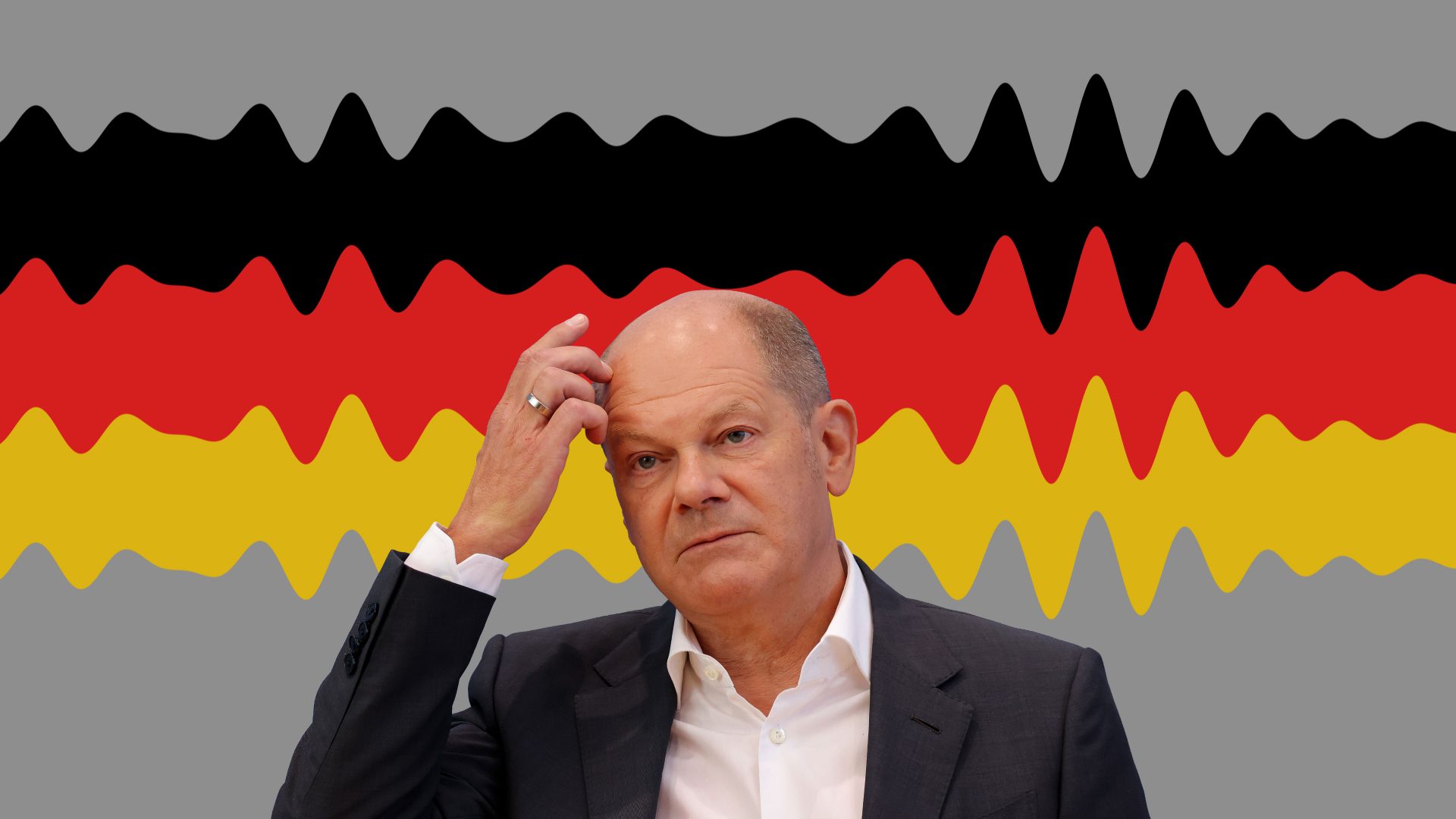There’s a famous line in Johann Strauss’s operetta Die Fledermaus: “Glücklich ist, wer vergisst, was nicht mehr zu ändern ist” – “Happy is he who forgets what cannot be changed”.
Olaf Scholz must be a very happy man.
Exactly how happy we will witness this Friday, when the chancellor’s memory loss will be on display (again) before a parliamentary committee of inquiry in Hamburg, where Scholz used to be mayor. And where the corpses he left have a nasty habit of popping their heads out of the cupboard. Or, lately, out of a safety deposit box.
The matter at hand, the Cum-Ex scandal, is complicated. It was the most successful scam in German history. Here’s what happened (imagine Margot Robbie explaining it to you from a bathtub with a glass of bubbles, like in The Big Short):
For years, German banks helped big investors to exploit a financial loophole. Around dividend record day, via a devious system of huge volume stock trades involving shares with (Cum) and without (Ex) dividends, they enabled various parties to double- and triple-claim the same tax refund. No taxes paid, tax refunds received – this so-called dividend stripping robbed the German exchequer of at least €12bn.
The loophole was closed in 2012. Banks that had enabled the scam were asked to pay back the refunds – an obvious move, you would think, but Hamburg tax authorities decided otherwise.
In 2016, under the mayor – Scholz – they allowed the Hamburg-based MM Warburg Bank to keep €43m. A year later, they wanted to let Warburg off again, this time for €47m. When the Berlin finance ministry got wind of it they compelled Hamburg to get the money – a rare procedure in our federal system.
Why would a city, and one run by social democrats, let a bank get away with not paying €100m it owed? No citizen would have such luck.
But Cum-Ex wasn’t about money withheld from the state: it was about billions stolen from it.
Warburg, family-owned since 1798, claimed it was completely innocent and would go bankrupt if forced to pay. Eventually it was forced to (€176m in total); not by the Scholz administration, however, but via court orders and instructions from Berlin.
Still, Scholz, his Hamburg successor (the former senator for finance), and the revenue officers involved insist there was no political interference.
Indeed, there is no proof, just circumstantial evidence that keeps piling up. A few examples:
During the period in question, Scholz had at least three meetings and further communication with then-Warburg boss Christian Olearius. The latter is now charged over damages exceeding €100m for several cases of aggravated tax evasion (he says the allegations are unfounded).
Investigators searched Scholz’s official Hamburg email account and calendar and say it looks as if electronic traces of meetings and correspondence have been deleted. Good thing that Olearius kept a diary (which prosecutors have seized).
A tax officer boasted to a friend on WhatsApp that her “devilish scheme” of letting Warburg off the hook had worked; experts say no mid-rank civil servant could decide on such sums without asking a higher pay grade.
Former MP Johannes Kahrs, a Hamburg SPD-ally, lobbied on Warburg’s behalf, paved the way to meetings with the then-mayor, received a Warburg donation of €45,000 for the SPD – and had his home and offices searched by investigators. In Kahr’s safe deposit box at a local bank they found €214,800 in small bills, plus $2,400. This money may not be Warburg-related, of course: it could be because Kahrs didn’t want to keep his MP’s salary under the mattress any more.
Scholz has dismissed any allegation of interference. When questioned by the parliamentary committee this week, he will again say he can no longer remember what Olearius and he talked about.
This is as credible as Boris Johnson stating “guidance and rules were followed at all times” during No 10 lockdown parties.
Olearius was already under investigation when the meetings with Scholz took place. I don’t believe for a second that Scholz is suddenly suffering from selective amnesia.
Innocent until proven guilty? Sure. The burden of proof doesn’t lie with Scholz. But he has a moral obligation. His “memory loss” not only tarnishes his own image, it also harms trust in our political system. So that’s one thing Scholz is already guilty of.




